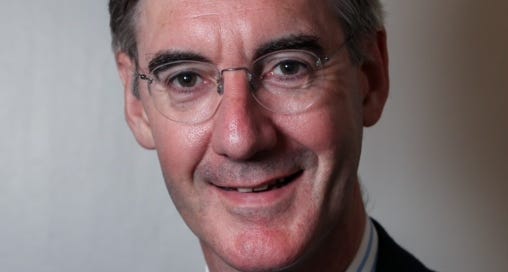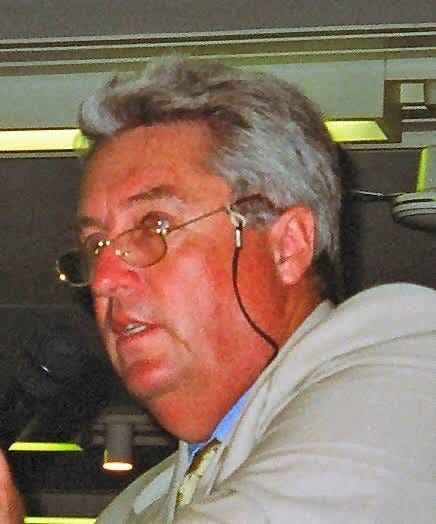Sports writers have this thing where we say that we only write about politics when we have to and that, in an ideal world, sports and politics shouldn’t mix. The first part is mostly true (but not today) and the second part is almost always nonsense because sport and politics are inextricably linked. Especially in South Africa.
Even when sport is providing the entertainment and distractions from the vicissitudes of ‘real life’ that we crave, many politicians jump on the bandwagon to share the credit – or deflect from their own shortcomings. Often, however, their worlds are spectacularly divergent from sport. Even those who are appointed to oversee it.
The UK’s ‘Minister for Brexit Opportunities’, the obnoxious and out-of-touch Jacob Rees-Mogg, last week compared Prime Minister Boris Johnson’s denial that he broke his own Covid Lockdown regulations (and subsequent conviction and fine) to a DRS review. “He thought it was ‘not out’,” said the Old Etonian flubberer, “so it went to the third umpire who decided it was out.” The irony of his metaphor was completely lost on Rees-Mogg. When the batter is given out they leave the game. Johnson remains at the crease.
Then came Nadine Dorries, the Minister for ‘Digital, Culture, Media and Sport.’ What kind of portfolio is that? How does the multi-billion Pound industry of ‘sport’ get lumped together ‘Digital, Culture and Media’? Is it even possible to have credibility in all those areas?
Dorries attempted to answer the question last week and began with the importance of good quality broadband and a ‘safe’ internet which allowed you to ‘downstream’ movies of your choice. And museums. Good museums were important. And sport? Yes – her department was dedicated to making sure there were ‘tennis pitches’ in every community which allowed people to ‘exercise their sports.’
Credibility is as critical as it is fragile in the business of sport, on and off the pitch, or field, or court. And that doesn’t necessarily mean the ability to tell the difference between a backhand slice and a cross-court forehand, or the Decision Review System. As long as you don’t ‘go there.’ But if you do, and reveal your ignorance, there is no way back. People who dedicate their lives to perfection in a sporting endeavour will not, cannot, be administered by somebody who pretends to understand but does not.
Some politicians have done very well with minimal knowledge of sport’s details by adopting a holistic approach: “I understand the importance of sport and I see the benefits it has on the youth of society. I will delegate the specifics to experts, what is required and where best to spend our resources, and I will concentrate on making the business work and producing further opportunities and future stars.”
In the late 1990s the late, great Bob Woolmer was breaking down cricketing assumptions and traditions on a monthly basis. He had already introduced a raft of new ideas to the Proteas – including the ‘promotion’ of reverse swing which had seriously challenged the more conservative members of the squad - and was forging ahead. He introduced the concept of a sports psychologist, and then he introduced an actual one.
Some players, including captain Hansie Cronje, were open to the idea. Others were very closed to it. The majority were skeptical, some healthily, others not so much. Adding to the misogynistic doubt was the fact that she was a woman. But she had made an encouraging start and had the attention of the majority of the room on her second encounter with the squad when she said: “…this is an exercise you could do when you have your half-time oranges.” And that was that. The fragility of credibility was shattered like a crystal glass, never to be put back together again.
And the third political story of the week came from Canberra where former Zimbabwean and Wallabies captain, David Pocock, released a video in which he explained his decision to renounce his dual citizenship with the country of his birth and formative years in order to stand for public office as a member of parliament in his hometown of Canberra.
Capped 83 times as the leading openside flanker in the world for much of his career, Pocock has been an active and occasionally outspoken campaigner on a variety of social justice and conservation projects in both Australia and Zimbabwe. He holds a bachelor of ecological agricultural systems degree and a Masters in sustainable agriculture. “The looming climate and biodiversity crises make building better ways of organising our lives, our communities and our societies more urgent than ever,” he said. “Our well-being is tied up with nature, we are part of nature.”
Not many great sportsmen and women have made a successful career in politics. Imran Khan? Becoming Prime Minister of your country must be considered a success, despite recently being unseated, and Pakistan made enormous economic and security progress under his guidance. David Pocock will be another. Politics’ gain is sport’s loss. For now.





I remember those 'oranges' back in the day at half-time. Fortunately cricket lunches were more substantial. Just don't ask a cricketer during a match 'who is winning?" ;)
Neil has homed in on both Rees-Mogg and Dorries and struck a direct hit. However, the broader point is also true. There is nothing more frustrating for the sports fan than the galling spectacle of politicians pretending to be men of the people, whilst exposing their ignorance of the art. At least (British Prime Minister) John Major had (and has) a genuine love of cricket. But politicians the world over will forever be drawn to the photo op.
And I defend Neil's right to comment on British politics and politicians.